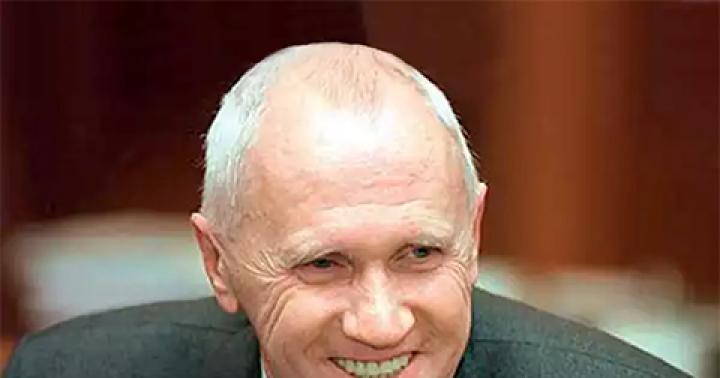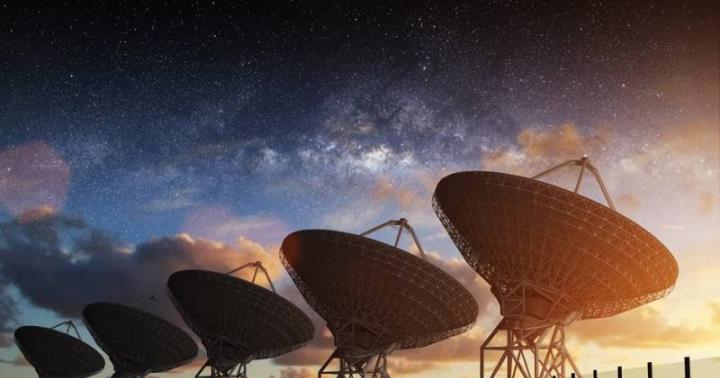Tomorrow, April 25, Fridinsky will be “discussed” in a special closed mode by the committees on constitutional legislation and defense and security.
Let us recall that Sergei Nikolaevich Fridinsky has held his post for a long time - since 2007. During this time, a lot has happened - from the global crisis to the war in Georgia and Ukraine. But Fridinsky always sat quietly in his place. Now the situation, as we know, is changing – after all, there are elections in 2018. Therefore, 2017 became the most “prolific” year for the resignation of corrupt officials.
Why is Fridinsky leaving right now? Perhaps Sergei Nikolaevich understands that the arrest of the former chief military prosecutor, if there is one, will look much less “spectacular” than the arrest of the current one. Perhaps Sergei Nikolaevich will not have any communication with the security forces at all. One way or another, the head of the GVP resigned.
"Frida"
Let us note that a lot of questions have accumulated for Fridinsky. Here it is worth remembering the major corruption scandal of 2012. .htm As it became known from sources in the department itself, “the chief military prosecutor is suspected of large-scale theft of land belonging to the Ministry of Defense (under Minister Serdyukov), and of deriving serious, both material and non-material benefits from these frauds.”
The case concerns the “loss” of 34 hectares in the village of Nakhabino, Krasnogorsk district, Moscow region. The price of just one hundred square meters in this area was about 30 thousand dollars! The defense department under Anatoly Serdyukov lost $100 million! It would seem, what does Fridinsky have to do with it?
Anatoly Serdyukov
The fact is that “the lands were received by Deputy Chief Military Prosecutor Sergei Devyatko (in 2008 - Head of the 3rd Directorate of the Main Military Prosecutor's Office, Senior Assistant to the Chief Military Prosecutor), former Deputy Chief Military Prosecutor Vladimir Melnikov (dismissed from military service by presidential decree 2013), former (until 2002) chief military prosecutor Mikhail Kislitsyn, head of the FSB supervision department Vladimir Molodykh, former head of the GVP personnel department Evgeny Ilduganov.”
Fridinsky's high-ranking subordinates actually "received the land by circumventing the law, since they were all military personnel at that moment."
As soon as Serdyukov was dismissed, Fridinsky began writing letters to various departments, where he accused those involved in the Oboronservis case.
"Esprit de corps"
Bloggers and Internet users have repeatedly talked about the dubious story with the “priestess of love,” or more precisely, the prostitute Olya, who allegedly “was underpaid by Fridinsky for her services, and even beat the woman so much that he crippled her.”
If this is the case, Fridinsky is resting not only with the “priestesses”, but also in the company of elite alcohol - his favorite drinks are Hennessy and Black Label cognac.
Are bribes smooth?
There is information according to which Fridinsky could take bribes; it is quite difficult to explain in any other way the presence of his shares in Norilsk Nickel. But he doesn’t need to do this, because the shares are not declared in the declaration! “I had a chance to get acquainted with the register of shares of Norilsk Nickel - there are such names there, it’s just amazing. For example, the chief military prosecutor Sergei Fridinsky. His wife has owned 5 million rubles worth of Norilsk Nickel shares since 2004,” -

Fridinsky Declaration
Let us emphasize that in 2003 a story surfaced according to which the former head of the General Staff of the Ministry of Defense Nikolai Makarov, at state expense, built himself a personal “dacha” in the Naro-Fominsk district of the Moscow region worth 10 million rubles. But the Main Military Prosecutor’s Office did not notice this “Fridinsky covered up the unsightly affairs of the former Chief of the General Staff Nikolai Makarov, and he, for his part, “did not notice” the numerous violations occurring in the Main Military Prosecutor’s Office,” says the article “Sergei Fridinsky: grimaces of prosecutorial corruption” .

Nikolay Makarov
Personnel policy
Let us note the “standard” situation for Fridinsky’s department. The GVP took in B.A. Gevorkyan. - a person without higher education! But the most interesting thing is that the young man was given the class rank of “senior justice adviser”! But according to the law, registration for service in the prosecutor’s office of B.A. Gevorkyan produced in violation of the requirements of Art. 40.1 of the Federal Law of January 17, 1992 No. 2202-1 “On the Prosecutor’s Office of the Russian Federation.”
The chief military prosecutor of the Russian Federation, Sergei Fridinsky, resigned due to retirement. He sent a corresponding letter with a request to consider the issue without his presence to Valentina Matvienko. It is still unknown who will replace Fridinsky, who has worked in this post for 11 years. The Main Military Prosecutor's Office did not comment on the resignation. Viktor Ozerov, chairman of the Upper House Committee on Defense and Security, confirmed that Fridinsky himself decided to resign due to his length of service. “There is a representation from the president, there is a letter from Fridinsky addressed to Valentina Matvienko with a request to consider the issue without his presence,” the senator said. According to current legislation, the procedure for the appointment and dismissal of the Prosecutor General of the Russian Federation and his deputies, including the chief military prosecutor, is carried out through the Federation Council on the recommendation of the president of the country. As for the decision of Fridinsky, who served in the army for more than 40 years, and in his current post for almost 11, the Federation Council made it clear: it is not related to disagreements between the general and the senators. A few months ago in an interview "Rossiyskaya Gazeta" Fridinsky also denied any pressure on the structure he heads from the security forces. “The military prosecutor’s office has always been led only by the Prosecutor General of Russia. If I ever felt pressure, I would be the first to say: I have to leave. Talk about a certain dependence of military prosecutors is someone else's tales. No scandals, no disputes on this basis have ever arisen,” Fridinsky noted then (). However, Kommersant’s sources in the supervisory department say that Fridinsky allegedly did not like the changes in the system of financing the military prosecutor’s office. Previously, they received funds from the Ministry of Defense, the FSB, the FSO and the Russian National Guard, against whose employees the GVP bodies carried out checks, and also supervised investigations of criminal cases against security forces. In addition, if previously issues with the assignment of successive ranks had to be resolved through the same supervised departments, primarily the Ministry of Defense, now this falls within the competence of the chief military officer and the prosecutor general. Meanwhile, Sergei Fridinsky is tipped for a new important appointment, in particular the post of Deputy Minister of Justice. For the post of head of the Main Prosecutor's Office, according to sources in the supervisory department, the candidate has not yet been finally determined - this will happen within two weeks. It is worth noting that recently there has been a tendency in the Prosecutor General’s Office to rejuvenate the leadership team. The latest example of this was the appointment of 40-year-old Andrei Kikot to the post of Deputy Prosecutor General (
Last weekend it became known that the Deputy Prosecutor General of the Russian Federation, Chief Military Prosecutor Sergei Fridinsky, resigned due to retirement due to length of service. His departure followed shortly after the military prosecutor's office began to be financed from the budget of the supervisory agency itself, and not from the security forces, as before. Mr. Fridinsky is tipped for the post of Deputy Minister of Justice, and the candidacy of his successor, according to Kommersant’s sources in the Prosecutor General’s Office, has not yet been finally determined and will be named within the next two weeks. At the same time, it is worth noting the clearly visible trend towards younger management in the prosecutor’s office.
The Federation Council's consideration of the Russian President's proposal for the resignation of the Deputy Prosecutor General and Chief Military Prosecutor, 58-year-old Sergei Fridinsky, is scheduled for the coming days. This fact was confirmed by the Chairman of the Upper House Committee on Defense and Security, Viktor Ozerov. According to him, on Tuesday the issue will be considered at a joint meeting of the Committee on Defense and Security and the Committee on Constitutional Legislation and State Construction, and on Wednesday at a plenary meeting of the Federation Council.
Mr. Fridinsky himself asked in a letter sent to the Chairman of the Federation Council Valentina Matvienko to consider the issue of resignation in his absence.
The official reason for resignation was retirement due to long service. Both the Prosecutor General's Office and the Main Military Prosecutor's Office (GVP) have so far refrained from making official comments on this matter. However, Kommersant’s sources in the supervisory department say that there were some other reasons for Mr. Fridinsky’s departure from the GVP. For example, there are rumors that he allegedly did not like the changes in the system of financing the military prosecutor's office. Let us recall that on January 1 of this year, Federal Law No. 145, adopted back in 2014, came into force, according to which the investigative bodies of the Main Military Investigation Department of the Investigative Committee of the Russian Federation and the supervisory bodies of the Main Military Prosecutor's Office should be financed from the budgets of the Investigative Committee and the Prosecutor General's Office, respectively. Previously, they received funds from the Ministry of Defense, the FSB, the FSO and the Russian National Guard, against whose employees the GVP bodies carried out checks, and also supervised investigations of criminal cases against security forces.
In addition, if previously issues with the assignment of successive ranks had to be resolved through the same supervised departments, primarily the Ministry of Defense, now this falls within the competence of the chief military officer and the prosecutor general. So, for example, Yuri Chaika, on the recommendation of the chief military prosecutor, can assign ranks up to colonel of justice (general ranks are awarded by presidential decrees) and accordingly appoint candidates for vacant military prosecutor positions, conclude and also extend contracts with employees of the military prosecutor's office.
Sergei Fridinsky has headed the GVP since 2006, before which he was deputy prosecutor general. During his leadership, scandals also occurred in the military oversight department. The most notable, perhaps, were the statements made several years ago by the former deputy head of the internal security department of the Main Military Prosecutor's Office, Colonel Oleg Zub. He claimed that in 2008, a number of military prosecutors, including high-ranking ones, allegedly illegally received land plots for free in the gardening partnerships “Ivushka”, “Zvezda”, “Novaya Zvezda” and “Militaryman”, located in the Krasnogorsk district of the Moscow region. The investigation into this matter, which is still ongoing, was taken under personal control by Prosecutor General Yuri Chaika. Meanwhile, Oleg Zub himself, as Kommersant reported, was accused of fraud some time ago, recently received a prison sentence and was stripped of his title.
Meanwhile, Sergei Fridinsky is tipped for a new important appointment, in particular the post of Deputy Minister of Justice. For the post of head of the Main Prosecutor's Office, according to sources in the supervisory department, the candidate has not yet been finally determined - this will happen within two weeks. It is worth noting that recently there has been a tendency in the Prosecutor General’s Office to rejuvenate the leadership team. The latest example of this was the appointment of 40-year-old Andrei Kikot to the post of Deputy Prosecutor General.
Alexander Alexandrov
Russia's chief military prosecutor, Sergei Fridinsky, has submitted his resignation. This information was confirmed by the Federation Council. It has not yet been officially announced who will replace Fridinsky at the post. In the meantime, a new job has already been found for the prosecutor - most likely, he will take the post of Deputy Minister of Justice.
“The Federation Council received an application from Sergei Fridinsky with a request to relieve him of his position due to his retirement due to length of service,” Viktor Ozerov, chairman of the Defense and Security Committee, said on April 22, as quoted by RIA Novosti.
According to the Constitution of the Russian Federation, the appointment and dismissal of the prosecutor general and his deputies, including the chief military prosecutor, is under the jurisdiction of the Federation Council. On April 25, the issue of the resignation of the chief military prosecutor will be preliminary discussed by the chamber committees on constitutional legislation and on defense and security behind closed doors, and on April 26 it will be considered at a meeting of the Federation Council.
Viktor Ozerov did not rule out that the departure of the chief prosecutor from his post may be associated with the reform of the Main Military Prosecutor's Office (GVP). He stated this on the radio station “Echo of Moscow”. “Perhaps this is also related to reform. We do not yet know in what form this reform will take place. Perhaps we will no longer have the position of deputy prosecutor general,” he said. At the same time, Ozerov noted that there is no exact information about the reasons for Fridinsky’s resignation.
In turn, sources of the Interfax agency claim that in the near future Fridinsky may not be retired at all, but in the position of Deputy Minister of Justice. “Talks about Fridinsky leaving the post of chief military prosecutor have been going on for a long time. And all this time, naturally, they were looking for a new position for him,” explained one of the agency’s interlocutors.
Interfax sources named the current prosecutor of Buryatia Valery Petrov as a possible successor to Fridinsky in the GVP. Among other contenders is the head of the department of the Prosecutor General's Office of the Russian Federation for supervision of inquiry and operational investigative activities, Sergei Ivanov, who previously worked in the military prosecutor's office.
The Main Military Prosecutor's Office itself refused to make any comments regarding Fridinsky's resignation.
Quite uncompromising in the fight against corruption
Sergei Fridinsky has held the position of Deputy Prosecutor General of the Russian Federation - Chief Military Prosecutor since July 2006, before which he worked for six years as Deputy Prosecutor General.
Fridinsky’s name appeared in the media in 1999, when he filed a lawsuit against Alexander Tolmachev, a journalist of the newspaper “Military Bulletin of the South of Russia”. In the article, the journalist claimed that Fridinsky allegedly used his position to obtain two apartments in the center of Rostov-on-Don out of turn. At that time, Fridinsky held the position of military prosecutor of the North Caucasus Military District. In May 1999, the court decided that the journalist’s actions should be qualified as an honest mistake, so Fridinsky was denied compensation.
Since 2000, Fridinsky was appointed Deputy Prosecutor General of the Russian Federation Vladimir Ustinov. In this position, he oversaw issues of the Southern Federal District. In particular, he led the investigation of terrorist attacks in the dormitory of the Chelyabinsk Internal Affairs Directorate in Argun in 2000, at the parades on May 9, 2002 in the Dagestan Kaspiysk and on May 9, 2004 in Grozny. During the latest terrorist attack in Grozny, the President of the Chechen Republic, Akhmat Kadyrov, was killed.
In 2004, the official moved to Moscow, where he took up issues of adoption of Russian orphans by foreign citizens, as well as general problems of homelessness and neglect. He came up with the idea of creating labor gymnasiums for such children. In 2006, on Fridinsky’s initiative, a large-scale wave of inspections took place in Russian schools, during which various violations were identified.
After Fridinsky was appointed to the post of chief military prosecutor of the Russian Federation in 2016, experts noted that the conflict between the Main Military Prosecutor's Office and the Ministry of Defense had ceased.
Military expert, first vice-president of the Academy of Geopolitical Problems Konstantin Sivkov “BFM” commented on the resignation of the chief military prosecutor: “Fridinsky had quite a lot of positive results from his activities. He was known in this post as a rather uncompromising person in the fight against corruption. He played a big role in exposing the atrocities of a group called “Rosoboronservis”, and, as we remember, for a long time they tried to cover up this case, to strangle it, but this did not work, because it had already become public. I think this is simply the result of the struggle between the clans. “I don’t think he’s simply reached the end of his potential in this position.”
That the chief military prosecutor Sergei Fridinsky resigned. On Wednesday, April 26, this issue will be considered at a meeting of the Federation Council. “Fridinsky has received a personal statement asking for his resignation,” the agency’s interlocutor said. On April 25, the issue will be preliminary discussed by the chamber committees on constitutional legislation and defense and security behind closed doors.
According to the Constitution of the Russian Federation, the Federation Council is responsible for the appointment and dismissal of the prosecutor general and his deputies, including the chief military prosecutor. According to the agency’s interlocutor, Mr. Fridinsky’s statement did not indicate the reason for his departure. The source noted that so far the Federation Council has not received any proposals for the appointment of a new chief military prosecutor.
Later, the chairman of the Federation Council Committee on Defense and Security, Viktor Ozerov, confirmed that Sergei Fridinsky had received a resignation letter due to retirement due to length of service.


